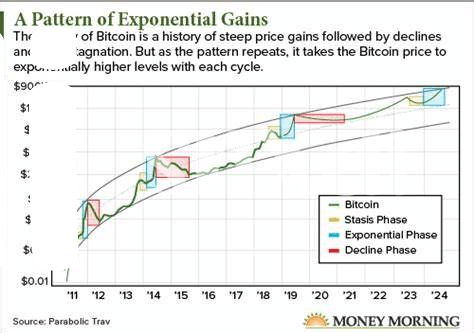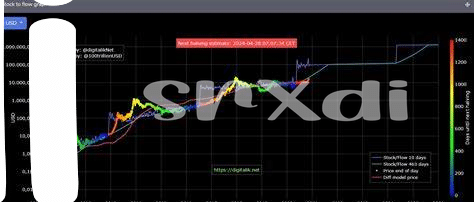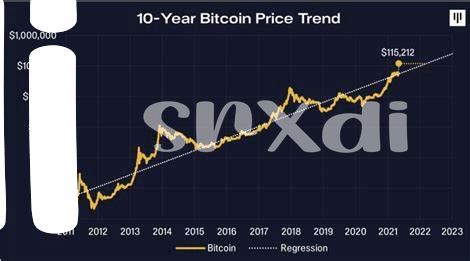🌍 How Government Policies Shape Bitcoin’s Value

Imagine governments as big players in a game where Bitcoin is a key piece. Just like in chess, every move they make can change the game. When a government decides to set new rules for using Bitcoin, like allowing people to pay taxes with it or deciding to regulate it tightly, it can really shake things up. These decisions can make people more interested in owning Bitcoin or make them think twice. It’s like when a popular café starts accepting a new kind of payment – suddenly, everyone is interested in it.
Now, let’s dive a bit deeper with a simple table showing how different government actions can push the Bitcoin price up or down.
| Action by Government | Impact on Bitcoin Value |
|---|---|
| Introduces favorable Bitcoin regulations | 📈 Increases demand and price |
| Imposes heavy taxes on Bitcoin profits | 📉 Decreases demand and price |
| Adopts Bitcoin as a legal tender | 📈Boosts confidence and demand |
| Announces plans to ban Bitcoin | 📉 Reduces confidence and demand |
Seeing how government actions can sway Bitcoin’s future, it becomes clear that staying informed about these changes is crucial for anyone interested in the cryptocurrency space. It’s a bit like watching the weather forecast before planning a day out. Knowing what’s coming can help you make better decisions, whether you’re just dipping your toes into Bitcoin or you’re already all in.
💸 the Impact of Inflation on Bitcoin Demand
Think of your money as a slice of pizza. If you’re the only one at the party, that pizza is all yours (yum!), But what happens when more people show up? Suddenly, your slice gets smaller and smaller. This is a bit like inflation, where the value of money decreases because there are more people (money!) chasing the same number of goods. Now, enter Bitcoin. It’s like having a secret pizza that doesn’t get smaller no matter how many people show up. When regular money loses its value because of inflation, more folks start eyeing Bitcoin, thinking, “Hmm, this might be a good place to keep my party snacks safe!” It’s not just a hunch; there’s a growing interest in Bitcoin when people see their money buying them less and less. This situation has many scratching their heads, considering whether Bitcoin could be a better bet for keeping their wealth safe from the hungry crowds of inflation. For more on how these economic dances influence the digital money landscape, check out this article on https://wikicrypto.news/global-economy-and-bitcoin-impact-and-influence. It dives deeper into the swirling world where traditional economy meets digital currency, opening up a whole new frontier for those looking to understand Bitcoin’s place in the global economic party.
📈 Stock Market Movements and Bitcoin Correlations

Imagine a giant seesaw. On one side, we have the stock market, where companies’ values go up and down based on how well they’re doing and what investors believe their future holds. On the other side, there’s Bitcoin, the digital money many people are talking about. Sometimes, when the stock market takes a big leap, people feel more confident and are willing to take risks, so they buy more Bitcoin, pushing its price up. But when the stock market falls, it can make people nervous. They might sell their Bitcoin, hoping to keep their money safe, which can lower Bitcoin’s price. It’s like a dance, where sometimes they move together, and other times they move to their own rhythm.
Now, think about when you’re watching a thriller movie and you’re on the edge of your seat, trying to guess what happens next. That’s how investors feel when they keep an eye on how stocks and Bitcoin interact. These movements are like clues that might tell us where Bitcoin’s price could be heading. But, remember, predicting Bitcoin’s future is tricky; it’s a bit like trying to guess the end of the movie before it’s over. Factors like big announcements from companies or unexpected global events can suddenly change the direction of the dance, making it an ongoing challenge for investors to figure out their next move.
🏦 Central Banks’ Decisions Driving Bitcoin Trends

Imagine you’re planning your next big vacation. You’ve saved up your money, but just before you book, the prices for flights and hotels skyrocket. This is somewhat similar to how the decisions made by central banks can influence the digital world of Bitcoin. These banks control the flow of money in their countries, much like the directors of a river deciding when and where to open the floodgates. When they make a move, like changing interest rates or printing more money, it can send waves through the global economy. These waves can make Bitcoin, a digital safe haven for many, either more appealing or less so, affecting its value.
Now, if you’re wondering how does bitcoin work, it’s a bit like an online version of gold, but it’s not controlled by any government or central authority. This independence from traditional financial systems makes it really attractive to those looking for an alternative, especially when they lose faith in their country’s currency. However, even Bitcoin, which operates on its own set of rules, can feel the impact of these central bank decisions. People might rush to buy Bitcoin when their own currency is losing value due to inflation or buy less Bitcoin if their currency is strong. In both cases, the central banks’ actions can steer the Bitcoin trends, just showing how interconnected our digital and traditional financial worlds really are.
🛢️ Global Oil Prices and Their Effect on Bitcoin
At first glance, it might seem odd to connect the world of digital currency with the gritty reality of oil barrels and global markets. But here’s the thing: as oil prices swing up and down, they send ripples through our whole economy. These waves can also reach the shores of Bitcoin. When oil prices jump, it can make everything more expensive, from the gas in our cars to the shipping costs for goods. This can grease the wheels for inflation – a scenario where money buys less and less. In response, some folks turn to Bitcoin, hoping it’ll be a safe harbor when their money starts to shrink in value. Moreover, countries that depend a lot on oil revenues can see their currency value wobble with oil prices. This sometimes leads them to latch onto Bitcoin as a steadier ship in a stormy sea. So, while Bitcoin might live in the digital world, it’s deeply connected to the hulking, physical realm of oil markets. Look at the table below to see how significant oil price changes have historically aligned with shifts in Bitcoin’s value:
| Year | Significant Oil Price Event | Bitcoin Price Reaction |
|---|---|---|
| 2014 | Oil prices plummet | Bitcoin value dips |
| 2018 | Oil prices spike | Bitcoin value gains momentum |
| 2020 | Oil crashes during pandemic | Bitcoin holds steady then climbs |
🌐 Internet Accessibility Boosting Bitcoin Adoption Worldwide

Imagine living in a world where, with just a few taps on your smartphone, you can manage money without needing a bank. That’s becoming a reality for more and more people as the internet reaches far corners of the globe. This web of connectivity isn’t just for scrolling through social media or binge-watching TV shows; it’s revolutionizing money through Bitcoin. With every new individual gaining access to the web, the potential for Bitcoin to grow increases. It’s like planting seeds in a vast garden — the more you plant, the more it blossoms. This digital currency thrives on participation; the easier it is for folks to get online, the smoother it becomes for them to join the Bitcoin journey. Through a simple online platform, such as a bitcoin exchange, anyone can swap their local currency for Bitcoin and join a global financial movement.
This wave of new participants is more than just numbers; it’s about real people discovering financial freedom. From places where banking is a hassle or even impossible, the internet is opening doors. 💻✨ Imagine a small business owner in a remote village now able to sell goods worldwide, or someone in a country with hyperinflation protecting their savings from losing value overnight. These stories are becoming everyday realities as internet accessibility lights the path for Bitcoin adoption. The blend of growing online access and blockchain technology is painting a future where money is more inclusive and empowering for everyone, regardless of where they are in the world. 🌍💡
